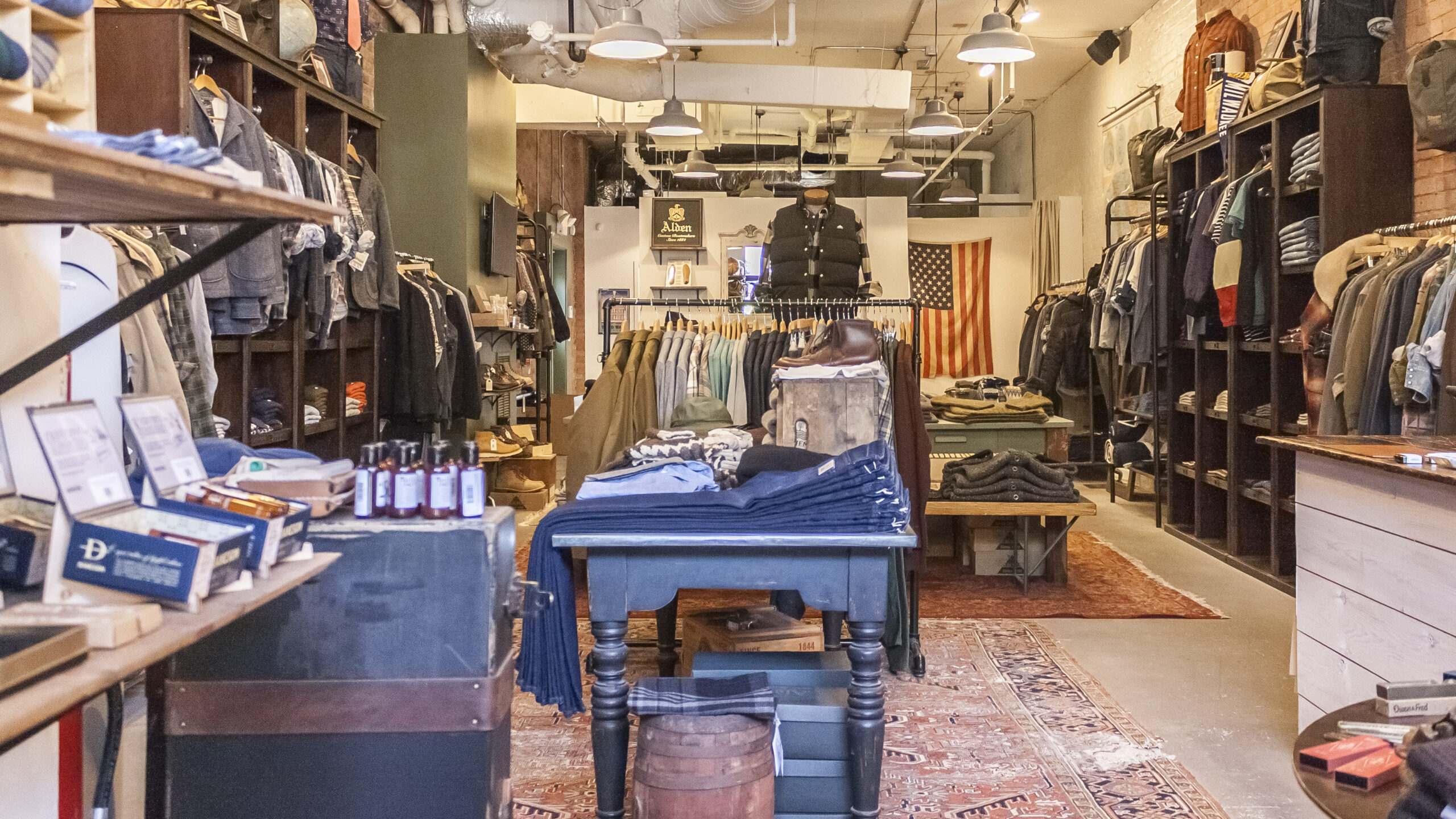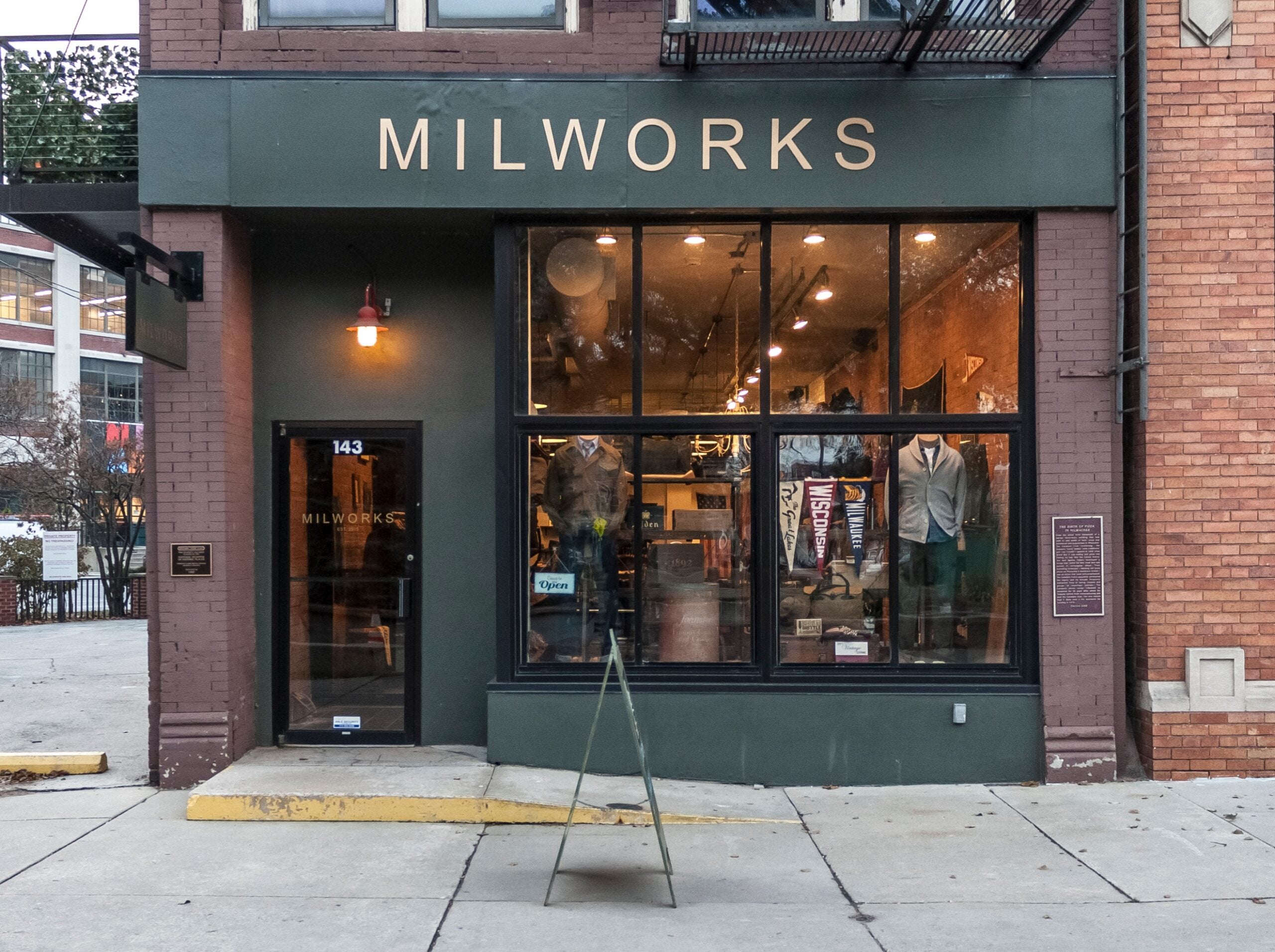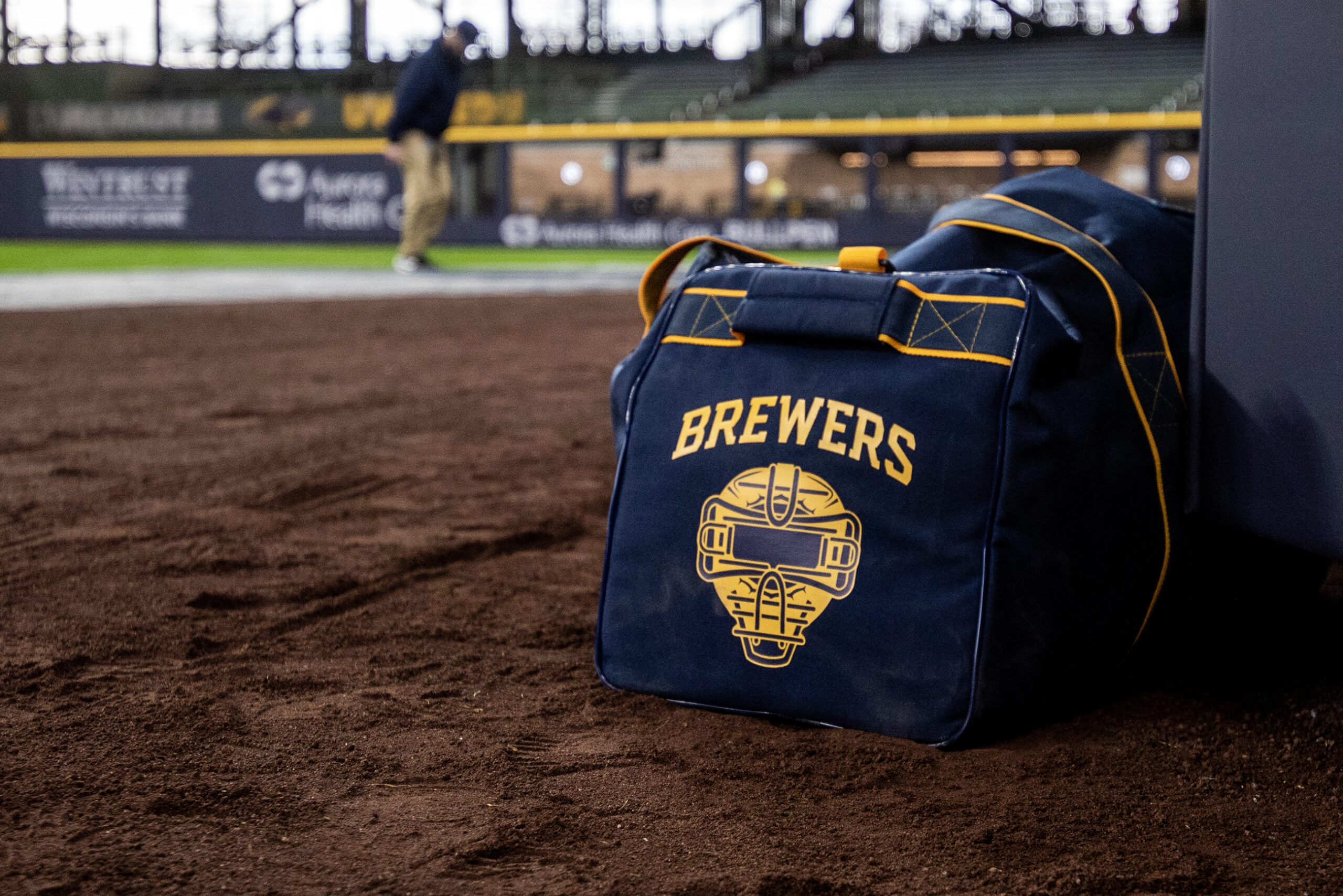While fast fashion topped $100 billion in sales in 2022 and is expected to nearly triple by 2032, a Milwaukee menswear store has carved a niche for itself selling what’s been described as “slow fashion.”
Milworks is a menswear store in Milwaukee that opened its brick-and-mortar location in 2016. Founded by brothers Jason and Jesse Meyer, and couple Tim and Heather Ellis, the business describes itself as selling “rugged yet refined” men’s items.
Menswear publication MR Magazine named Milworks its merchant of the year in 2023. In an interview with the magazine, founder and CEO Jason Meyer said he and his brother sometimes butt heads running a business together.
Stay informed on the latest news
Sign up for WPR’s email newsletter.
“But there’s respect and understanding there,” Jason told the magazine. “We give each other a little space, let it cool down a little bit, then chat about it again, and it’s always worked out.”
Jesse and Jason Meyers joined WPR’s “Wisconsin Today” to discuss their upcoming second store in Portland, Oregon and their vision for menswear and Milwaukee style.
The following interview has been edited for clarity and brevity.

Rob Ferrett: We’re in a world of fast fashion and a lot of ways, right? It’s cheap, it’s maybe in the landfill after five wearings. That doesn’t seem to be your approach. Can you talk about your philosophy when it comes to the kinds of clothes you want to put out there?
Jason Meyer: We are a better casual space. A lot of the brands that we deal with are the opposite of fast fashion. A lot of the brands are very small batch, they’re family owned.
Even the bigger brands that we carry have these smaller divisions that are what we deal with. And so their focus is on the fabric, the quality, who’s making it, where they’re making it. A lot of times when we’re ordering stuff from our vendors, it’s not even made yet — they make it for us.
So it is really kind of the opposite of fast fashion. And our customer has really grown to appreciate that. Because you’re right. You’ll come in here and you’ll grab a nice flannel or a nice pair of pants or a pair of jeans, and you will wear them for several years.
RF: Milworks sells Americana style clothing from local companies like Thorogood and Milwaukee Boot Company. But some of your Americana clothes come from Japan. Why is that?
Jesse Meyer: Japanese manufacturers really have an appreciation for American culture. Specifically what we will call the “Golden Age” after World War II, the 1940s through 1965.
What had happened is, when we got out of manufacturing here in the United States, a lot of Japanese companies came over and bought all of our old machinery and they took it back to Japan and are now making their products on our old machines with what they feel is their Americana style.
RF: Any thoughts on the future of menswear? What are you watching for next?
Jason Meyer: I think the real general view of menswear — and I think part of our success, as Milworks and the brand and the brands we carry in the actual physical store — is you’re seeing kind of this evolution that’s like a throwback.
Guys are really enjoying coming into spaces, hanging out, talking about the brands, taking things slower. Even our guy who’s very into clothing, he’s very into certain look … guys in general are still not shoppers. Men and women are very different in how they approach that.
So for our guy, part of our success is that we’re kind of old school. I don’t want to say we’re like a haberdashery or something like that, but we definitely lean in that direction. You can come in here, you can hang out, we’ll talk about where these jeans are made or where these great boots are made.
And guys feel like in a very small way that they’re kind of part of a club. And I think the stores around the country that we are seeing succeeding is because they’re kind of taking all that and just slowing down a little bit.




